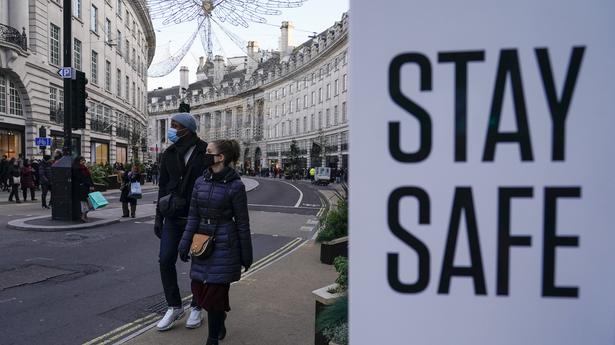
COVID-19 cases up by more than 30% in Britain last week
The Hindu
The latest surge comes after an earlier increase of about 40% last month, following the large street parties, concerts and festivities held to mark 70 years of Queen Elizabeth II's reign.
The number of new coronavirus cases across Britain has surged by more than 30% in the last week, new data showed on Friday, with cases largely driven by the super infectious omicron variants.
Data released by Britain's Office for National Statistics showed that more than 3 million people in the U.K. had COVID-19 last week, although there has not been an equivalent spike in hospitalizations. The number of COVID-19 deaths also fell slightly in the last week.
“COVID-19 has not gone away,” said Dr. Mary Ramsay, of the Health Security Agency. “It is also sensible to wear a face covering in crowded, enclosed spaces,” she said. Britain dropped nearly all its coronavirus measures, including mask-wearing and social distancing months ago and masks are rarely seen on public transport.
The latest jump in Covid cases comes after an earlier increase of about 40% last month, following the large street parties, concerts and festivities held to mark the platinum jubilee celebrations marking 70 years of Queen Elizabeth II's reign.
British officials said the latest wave of COVID-19 infections were likely caused by omicron subvariants BA.4. and BA.5. Omicron has tended to cause a milder disease than previous variants like alpha or delta, but scientists warn its ability to evade the immune system means that people may be more susceptible to being reinfected, including after vaccination.
“The constant bombardment of waves we are seeing does cause clinical impact that is not to be underestimated,” said Dr. Stephen Griffin, an associate professor of medicine at the University of Leeds, explaining that any infection can lead to long COVID.
Despite widespread immunization across Britain, the protection from vaccines is likely fading and omicron and its subvariants have evolved to become more infectious. Britain's Health Security Agency said they were seeing more outbreaks in care homes for older people and a rise in admissions to intensive care units of people over 65.













